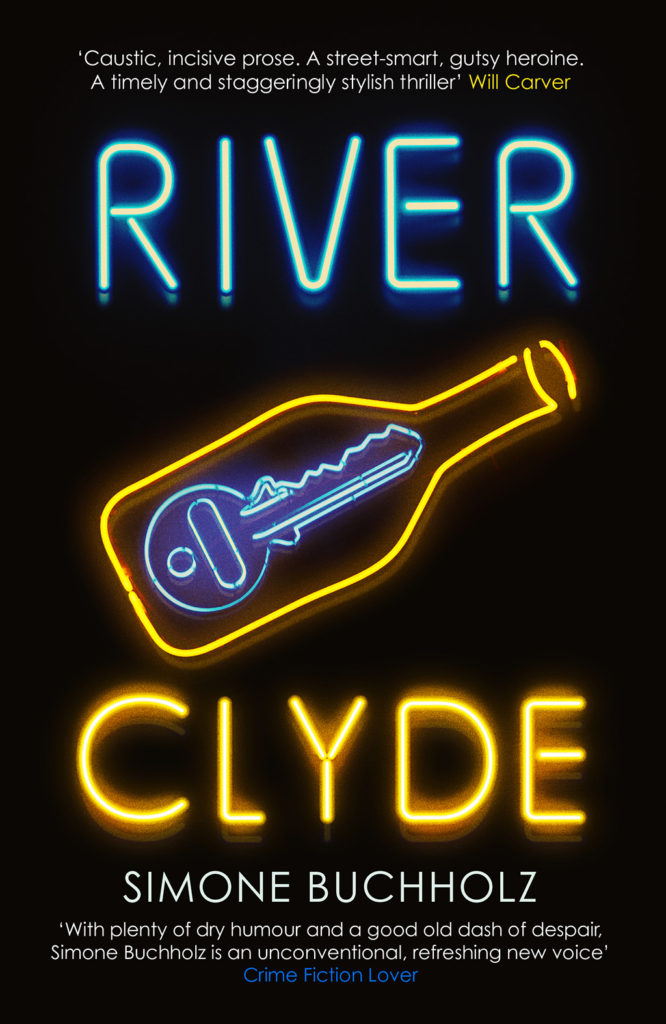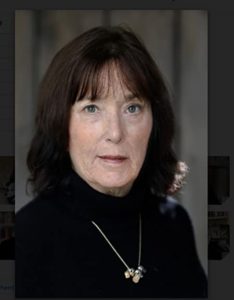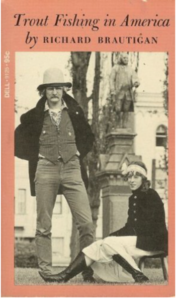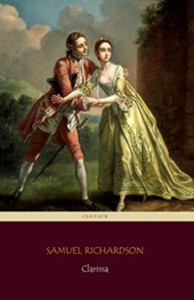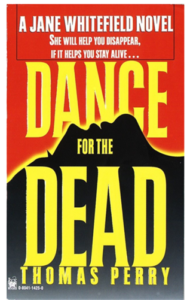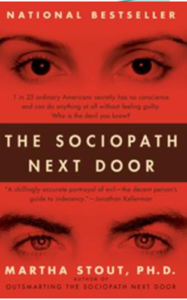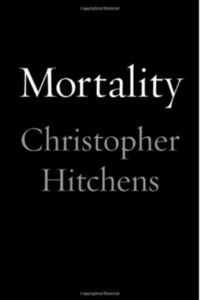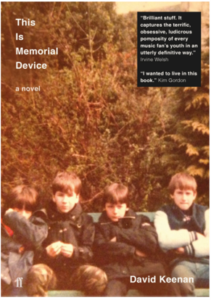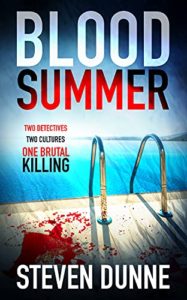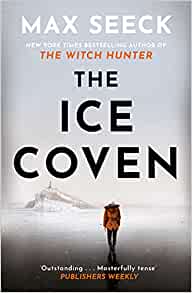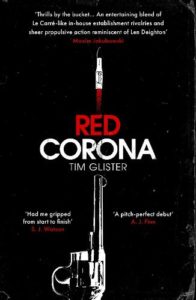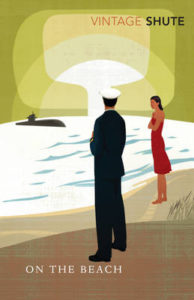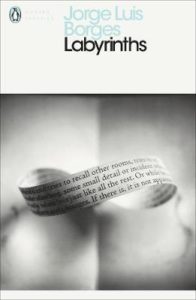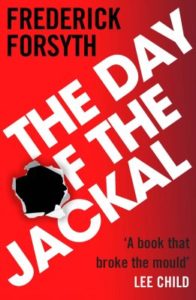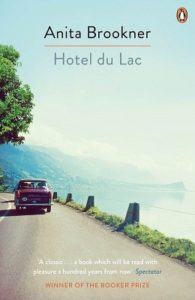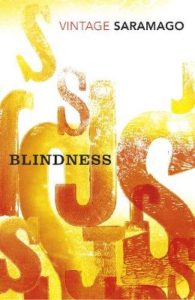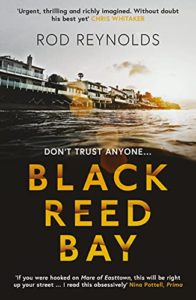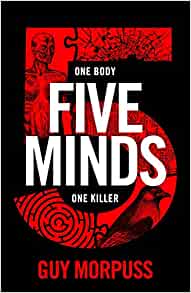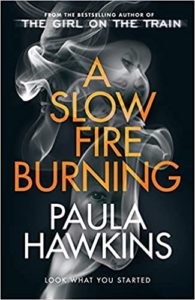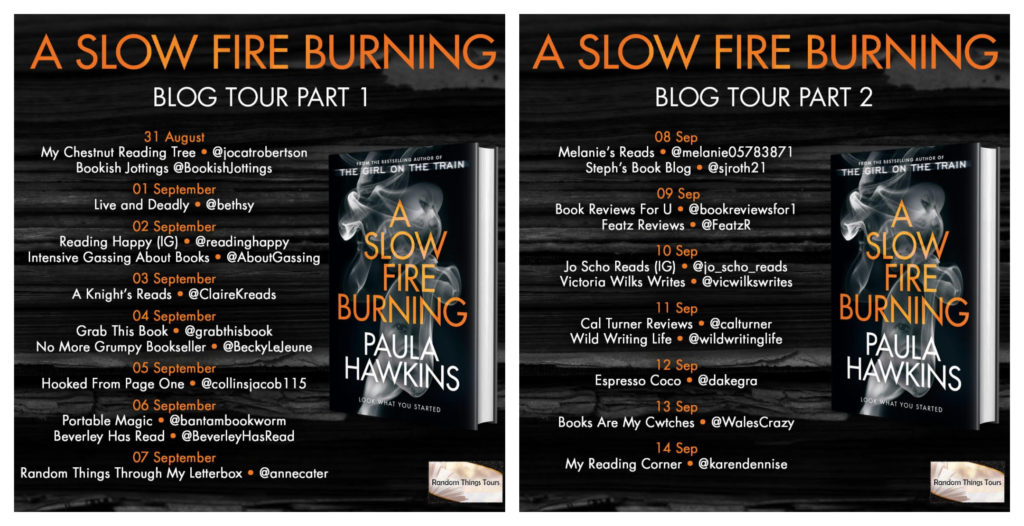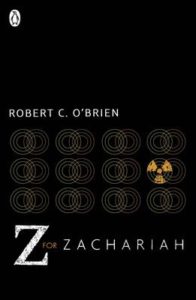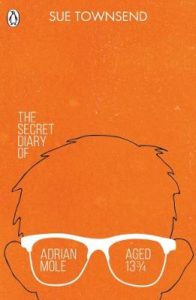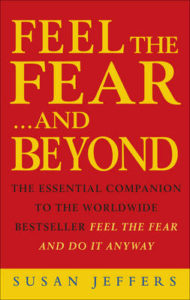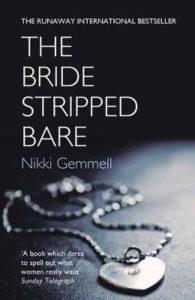We are back. Decades time. And boy oh boy, there sure are some great new books about to wing their way to my Decades Library!
But wait – what’s Decades?
At the tail end of 2020 a “real world” incident happened which I should really tell you about one day. That incident got me thinking…if you had a brand new library and were tasked with filling the shelves; which books would you pick? I knew this was not a question I could answer alone so I decided to ask booklovers to help me. Each week I am joined by writers, bloggers, journalists and publishers and I ask them to pick five books they want me to add to the Decades Library.
Picking five books is easy and does not result in your guests calling you a swine. So I added a wee twist and made the selection process a bit more of a challenge. My guests are asked to add five books to my library but they may only select one book per decade from five consecutive decades. Imogen Church said it was “easy”, RJ Barker called me a “monster” and Russel D McLean…well Russel told me he had fun but there was a bit of name calling.
I leave you in the capable hands of Russel who wants to take us back to 1946 where his selections commence:
DECADES
First up – Gordon, you’re a swine, making me do this! A swine! How can I choose only five books, and one per decade? I mean, my initial list is something like twenty or thirty per decade… how can I narrow it down? How?
At least I know where I’m starting because I think any library worth its salt should have my 1940s choice…
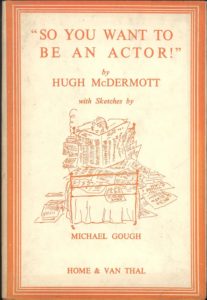 So You Want to Be an Actor by Hugh McDermott, with sketches by Michael Gough (1946)
So You Want to Be an Actor by Hugh McDermott, with sketches by Michael Gough (1946)
An odd choice, perhaps, to start my decades; a guide to acting by a Scot who made a decent enough career in movies such as Mrs Minniver, No Orchids for Ms Blandish and the sublime Scottish B-movie, Devil Girl from Mars.
But there’s method in my madness. For Hugh McDermott is my great, great, great (too many greats? Too little? It’s not terribly clear; the McLean family tree is rather overgrown in places) uncle.
I never met him, but upon discovering his filmography, and our family connection, I wanted to know more about him. Especially when I found out about his leading man turn in Devil Girl From Mars. but Uncle Hugh also starred in one of the most controversial movies of its era (controversial for its violence, although the US accents by the all-British cast are… well… controversial in their own way), No Orchids for Ms Blandish (based on the novel by James Hadley Chase)
Hugh’s one and only book, So You Want to be an Actor, is a compact wee hardback volume, full of ever so slightly sarcastic advice for actors of stage and screen… such as this little gem on how to avoid being a ham (after witnessing a particular actor in a play):
The villain on making his entrance… pushed his face through the door, well ahead of his body, and held it there, awaiting a burst of applause that didn’t come. That, my dear Watson, is “Ham” with an of gravy around it.
Naturally, then, given that he also wrote a book, I feel the need to include this in Gordon’s ultimate library (even if it is long out of print, although copies crop up here and there!) finally giving Uncle Hugh his due!
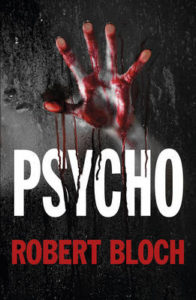 Psycho by Robert Bloch (1959)
Psycho by Robert Bloch (1959)
In of those pieces of received wisdom I never want to check in case its untrue, someone once told me that Alfred Hitchock bought up the entire print of Robert Bloch’s novel when he decided to make a move from it in order that no one would spoil the surprise twists in the plot. Whether its true or not, it sounds like it should be – after all, Hitchock’s film followed the main thrust of the novel pretty closely, but the book goes into far more twisted detail about the way in which Norman Bates’s mind works, and deepens his relationship to “mother”.
It’s a short, sharp, shocker of a novel (my edition is 151 pages long) that is so tightly constructed you’re always in fear that the springs are about to come loose. But they never do. If you know the movie, then the book provides a different viewpoint and a few unexpected variations that you can see would never have made into the movie. And if you don’t know the movie… hooo boy, are you in for a dark, disturbing treat when you check in at the Bates Motel…
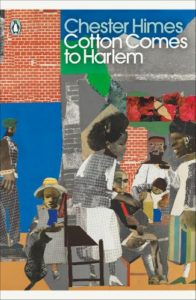 Cotton Comes to Harlem by Chester Himes (1965)
Cotton Comes to Harlem by Chester Himes (1965)
Honestly, I could have chosen almost any one of Chester Himes’s brilliant Coffin Ed Johnson and Gravedigger Jones books (thank goodness they spanned a few decades!) but this is the first one I think I read, and it’s a humdinger of a thriller that starts with $87,000 being stolen from a Back to Africa rally, and ends up with cops, criminals and more chasing after a bale of cotton that may contain the missing money.
Himes is one of my favourite US writers – his serious, earlier novel, If He Hollers, Let Him Go, is a chilling account of racism in the USA, but his crime novels deserve to be talked about in the same breath as Chandler, Hammet, et al – and Cotton Comes to Harlem is one of his paciest and most gripping books. If you haven’t read Himes before, you should start here.
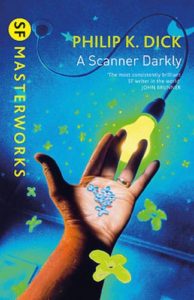 A Scanner Darkly by Philip K Dick (1977)
A Scanner Darkly by Philip K Dick (1977)
Once, during a live event, the magnificent modern author of British Noir, Ray Banks (an author who should be far better known, and whose books deserve to be rediscovered by a huge audience) asked me if I was a Dickhead. After a sharp gasp from the audience, we had to clarify that he was asking if I was a fan of the science fiction author Philip K Dick.
And the answer yes is a massive yes: I am indeed a Dickhead.
A Scanner Darkly is one of Dick’s most personal novels. As his career went on, many of his novels would take and explore aspects of his personal life, including his religious beliefs, and what some might terms as his delusions that he had made contact with a higher power. But 1977’s A Scanner Darkly is personal in a deeply affecting way, talking about the highs and lows of drug use through the medium of a near future thriller. No doubt there are biographical aspects in this story of an undercover cop investigating users and deals of Substance D (D for Death, of course). The cop himself wears a scramble suit when on duty so no one can identify him. Even his superiors don’t know who he is. But his latest target is someone who’s a bit too close to home: himself.
The book is at its best chronicling the everyday life of the protagonist and his group of friends, all of whom are, in one way or another, addicted to or affected by D. The book doesn’t shy away from the seductive allure of drug use either, or the joy of shared experiences, but it doesn’t sugarcoat the tragedies, either. In many ways it’s a better exploration of the drug lifestyle than, say, Trainspotting, because it feels almost too natural in places.
But the SF work here is excellent as well, and the exploration of how it must feel to be investigating yourself is superbly done. Dick was never a master of the science side of science fiction, but his insight into people was second to none, and A Scanner Darkly is his most affecting novel, ending on a sobering reminder of the reality Dick was writing about.
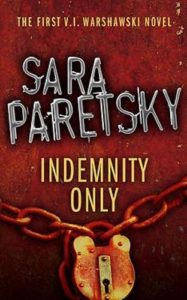 Indemnity Only by Sara Paretsky (1982)
Indemnity Only by Sara Paretsky (1982)
No library is complete without at least one book by Sara Paretsky. Into the eighties and beyond, a new generation of women crime writers reshaped and reformed the discussion around crime fiction, and Paretsky is one of the first and best of them. Without VI Warshawski, her brilliantly rounded PI, who makes her debut here; employed to find her client’s son’s missing girlfriend.
Of course, things get complicated fast, and VI needs to employ all of her skills to unravel the complex and dangerous investigation. VI is, even early on, a fully formed character, and Paretsky’s pacy writing style, even in her debut, is gripping and confident.
It cannot be underestimated what an impact Paretsky – along with other writers such as Sue Grafton – had on crime novel in the eighties and beyond (her latest VI novel, Dead Land, was released in 2020).
VI was a realistic and convincing step away from the old, two-fisted and very male PI of the past, using the form to explore more complex themes of class, feminism and so much more, while still creating a thrilling mystery that entertains and grips the reader.
While Paretsky’s proceeded to build her craft since this first novel, deepening her characters and their world, this is where it all began, meaning the book absolutely deserves a place in any decent library (and it remains an absolute belter of a read!).
 Russel D McLean is the author of seven crime novels, one short story collection, and a whole bundle of other uncollected shorts. His first five novels, focussed on a PI working out of the Scottish city of Dundee, are currently being re-released in new digital and print editions, with the final book in the series, Cry Uncle being re-released soon. His latest standalone novel – published by the brilliant Saraband – is Ed’s Dead, which was described by Martina Cole as “a really authentic and remarkable read!”
Russel D McLean is the author of seven crime novels, one short story collection, and a whole bundle of other uncollected shorts. His first five novels, focussed on a PI working out of the Scottish city of Dundee, are currently being re-released in new digital and print editions, with the final book in the series, Cry Uncle being re-released soon. His latest standalone novel – published by the brilliant Saraband – is Ed’s Dead, which was described by Martina Cole as “a really authentic and remarkable read!”
When not writing novels, Russel works as a freelance development editor for several publishers, and is currently working on projects in other forms that he’s looking forward to talking about when he’s allowed!
In the past, he’s been a bookseller, a freelance book reviewer, a roving events chairperson, and a general miscreant.
Find out more about Russel at www.russeldmcleanbooks.com, or follow him on Twitter @russeldmclean, where he talks about the books he’s reading (#russelreads), the movies he’s loving (#russelwatches), the three cats that allow him and his wife to share their flat, and anything else that falls into his brain.
This week I am heading to Stirling where I hope to meet some old friends at Bloody Scotland. Despite my shyness I am really looking forward to finally meeting some of my previous Decades guests and thanking them in person for helping to grow my Library. I also hope to meet some future Decades guests – watch this space!
DECADES WILL RETURN
